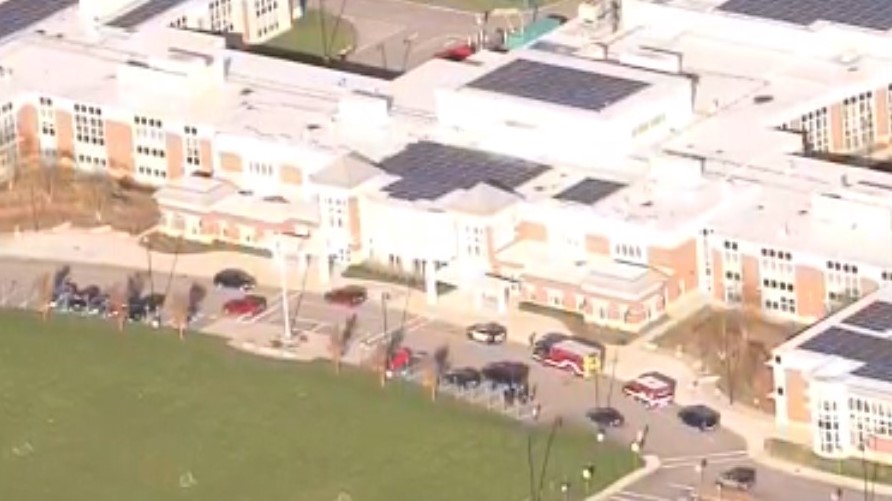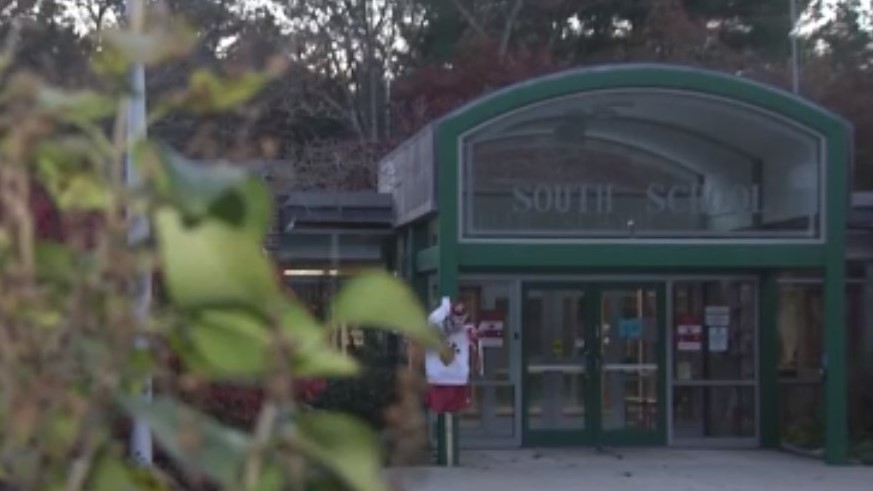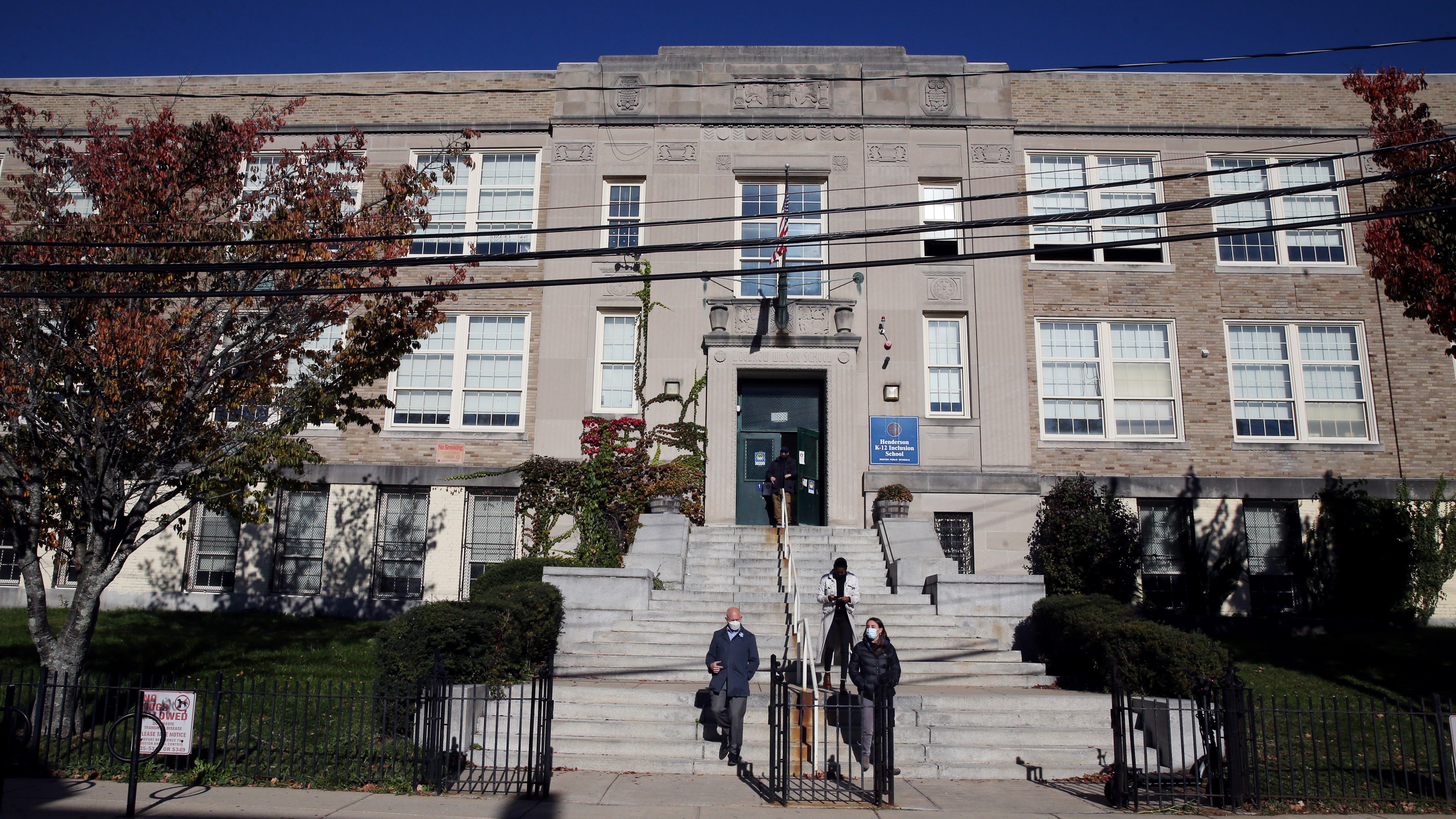Shoving matches broke out as the two groups held dueling protests amid a heavy police presence. Boston police said two people were arrested. The exact charges were not immediately released, but police said they would likely include disorderly conduct.
A few people were treated on scene but no serious injuries were reported.
So what happened at Sunday's protest on Boston Common?
Get New England news, weather forecasts and entertainment stories to your inbox. Sign up for NECN newsletters.
The rally was scheduled for noon Sunday on the Boston Common.
Problems started early on in the rally after the windshield of the protesters' rental van was smashed and the van drove into barricades.
Nearby businesses were closed and Emerson College locked campus doors, warning students of potential problem.
At one point, a fight broke out between the groups, and police had to break it up.
What is Super Happy Fun America?
The chaotic events stemmed from a planned protest against mask and vaccine mandates organized by members of Super Happy Fun America, a Massachusetts group with far-right ties that was behind plans for a “Straight Pride” parade in 2019.
A far larger group of counter demonstrators showed up to oppose the group. Individuals from both sides pushed against metal barriers erected by police, and at another point protesters from the Super Happy Fun America walked around police to confront the counter demonstrators.
Super Happy Fun America is best known for organizing the controversial "Straight Pride" parade in 2019, and the Refounding Fathers Coalition. Sunday's event aimed to "resist vaccine passports, face diapers, mass layoffs, and unconstitutional mandates," the organization said in an announcement ahead of the event.
The Boston Globe said the group has been under increased scrutiny after two of its leaders were charged in connection with the Capitol riots on Jan. 6, 2021.
Who were the counter protesters?
Elizabeth Birdsall, one of the participants in the "Mask Up Against Hate" counter demonstration, held a sign reading “No Hate in Boston.” She told the Globe that she wanted to push back against people who would make Boston “less safe and less equal.”
“We heard there was going to be a rally of anti-vaxxers and white supremacists and so forth, and we wanted to help drown that out,” said Birdsall, 39, “and support safety and equality for everyone in Boston.”
Among the counterprotesters was a brass band, and their goal was drown out the anti-mask and -vaccine protesters with music.
Boston police defend response
The Globe said one member of Super Happy Fun America was critical of police for not doing enough to protect them.
But Sgt. Detective John Boyle, a Boston police spokesman, said authorities were prepared for the chaos.
Police had closed streets around Boston Common in preparation for the rally. There were hundreds of Boston police officers in the area before the rally started at noon.
“We had a well-prepared solid plan,” Boyle said. “The fact that two people were arrested, and no injuries, no officer injuries, I don’t see a breakdown.”
The rally appeared to have wrapped up by 2 p.m.
Jacobson v. Massachusetts
Masks and vaccines have consistently been shown to be safe, effective ways at limiting the spread of the coronavirus pandemic, which has killed more than 18,500 people in Massachusetts and more than 750,000 people nationwide.
The measures have been popular in Massachusetts, which is among the most vaccinated states in the country and where indoor mask use is common in public places. Seventy percent of the state's population is vaccinated, according to the U.S. Centers for Disease Control and Prevention, including about 81% of adults.
Anti-mask and anti-vaccine groups have been vocal about their opposition to the measures throughout the pandemic. The organizers of Sunday's event billed it as "Rise Against Tyranny."
The U.S. court system has long supported states' right to require vaccinations for its residents, dating back to a case that originated across the Charles River from Boston.
In 1905, the Supreme Court ruled in Jacobson v. Massachusetts that the Board of Health of Cambridge was within its rights to require adults to get the smallpox vaccine.




